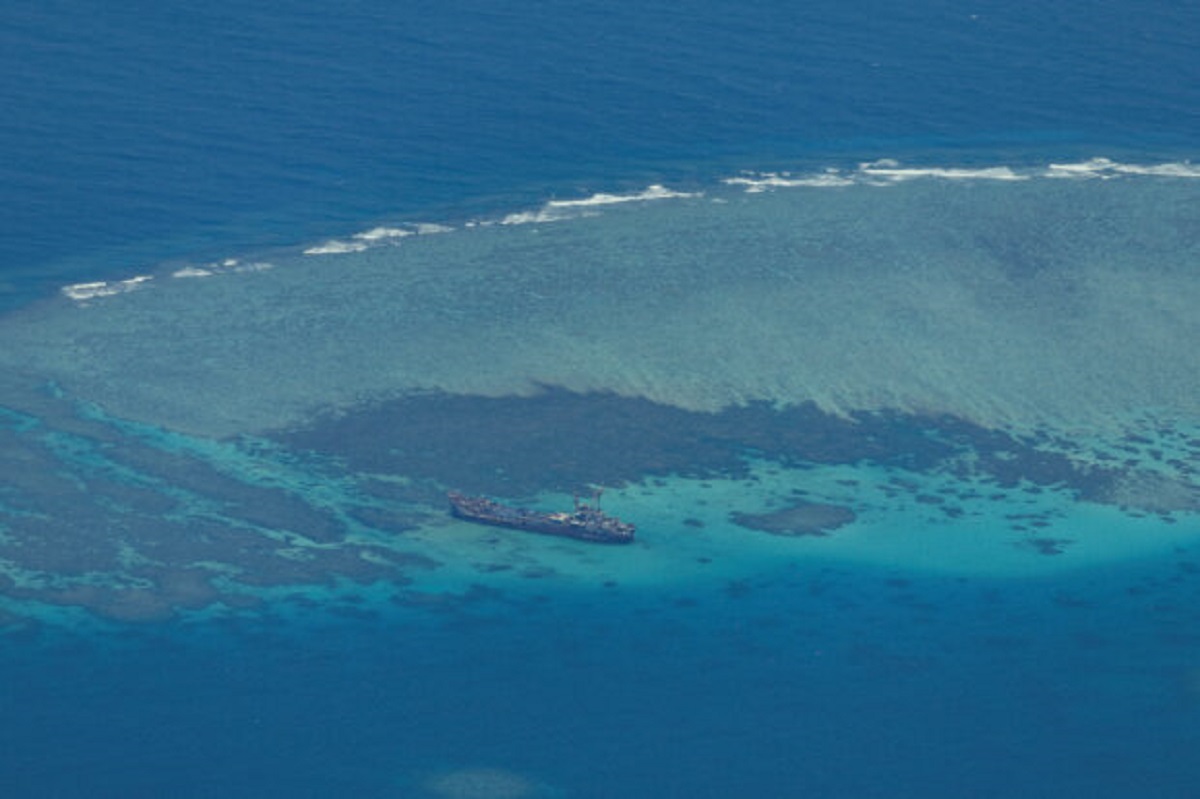Marcos upbeat on adoption of South China Sea code of conduct

An aerial view shows the BRP Sierra Madre on the contested Second Thomas Shoal, locally known as Ayungin, in the South China Sea, March 9, 2023. (INQUIRER FILES)
KUALA LUMPUR – President Ferdinand R. Marcos Jr. is optimistic that the legally-binding Code of Conduct on the South China Sea will be eventually adopted, Malacanang said on Monday.
In an interview on the sidelines of the Association of Southeast Asian Nations (Asean) Summit here, Presidential Communications Office Undersecretary and Palace press officer Claire Castro said Marcos recognized the urgency of concluding negotiations on the Code of Conduct.
“The President is very optimistic that there will be a conclusion on this legally binding code of conduct on the South China Sea. He is very optimistic. That’s why he brought this up in the plenary just this morning,” Castro told Palace reporters here.
She was referring to the Code of Conduct on the South China Sea that is seen to prevent major conflict in the disputed waterway.
Castro conceded that the possibility of adopting this by 2026 or when the Philippines hosts the ASEAN Summit depends on the negotiations between China and the ASEAN member-states.
“It depends on each nation, of course there are nations involved in this like China and other ASEAN member-states. It will depend on the flow of negotiations,” Castro said.
What is clear is that the President has made his point known during the plenary session with urgency, she said.
“You can sense in his words that he wants it done fast. We hope it will be done soon. There is urgency,” Castro said.
She added: “The President really wants the legally-binding code of conduct to be adopted. There are many nations concerned over this, and we have wanted a Code of Conduct on the South China Sea for a long time.”
Earlier on Monday morning, Marcos stressed the “urgent need to accelerate the adoption of a legally binding code of conduct in the South China Sea.”
He said the adoption of the Code of Conduct – which the Philippines is eyeing by 2026 – is to “safeguard maritime rights, promote stability, and prevent miscalculations at sea.”


















